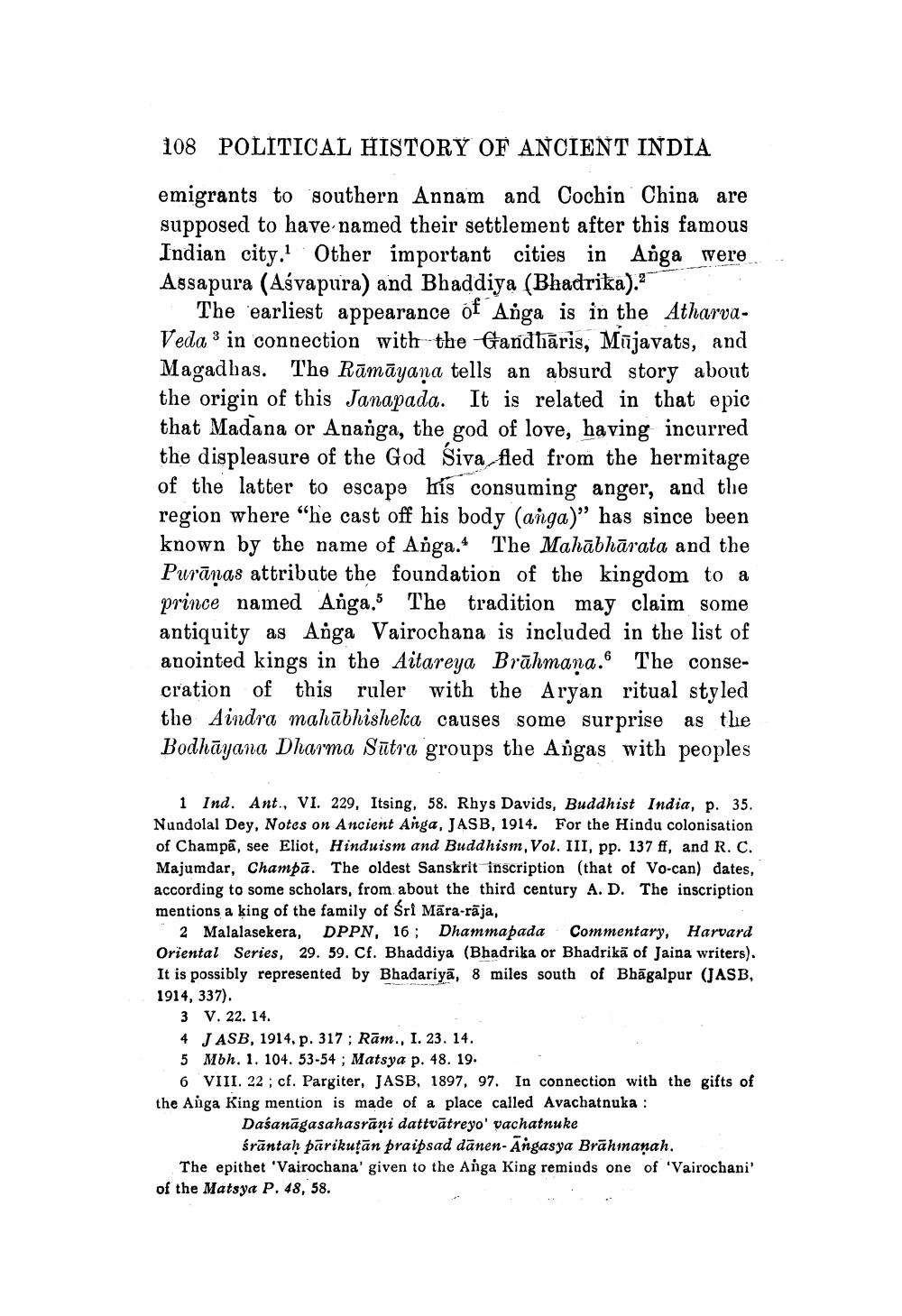________________
108 POLITICAL HISTORY OF ANCIENT INDIA
emigrants to southern Annam and Cochin China are supposed to have named their settlement after this famous Indian city. Other important cities in Anga were Assapura (Aśvapura) and Bhaddiya (Bhadrika).
The earliest appearance of Anga is in the AtharvaVeda 3 in connection with the Gandhāris, Mūjavats, and Magadhas. The Rāmāyana tells an absurd story about the origin of this Janapada. It is related in that epic that Madana or Ananga, the god of love, having incurred the displeasure of the God Śiva fled from the hermitage of the latter to escape hís consuming anger, and the region where "he cast off his body (anga)” has since been known by the name of Anga. The Mahābhārata and the Purānas attribute the foundation of the kingdom to a prince named Anga. The tradition may claim some antiquity as Anga Vairochana is included in the list of anointed kings in the Aitareya Brāhmaṇa. The consecration of this ruler with the Aryan ritual styled the Aindra mahābhisheka causes some surprise as the Bodhāyana Dharma Sūtra groups the Angas with peoples
Champā, see Eliot, the oldest Sanskrit inscentury A. D. The
1 Ind. Ant., VI. 229, Itsing, 58. Rhys Davids, Buddhist India, p. 35. Nundolal Dey, Notes on Ancient Anga, JASB, 1914. For the Hindu colonisation of Champa, see Eliot, Hinduism and Buddhism, Vol. III, pp. 137 ff, and R. C. Majumdar, Champā. The oldest Sanskrit inscription (that of Vo-can) dates, according to some scholars, from about the third century A. D. The inscription mentions a king of the family of Sri Māra-rāja, "2 Malalasekera, DPPN, 16; Dhammapada Commentary, Harvard Oriental Series, 29. 59. Cf. Bhaddiya (Bhadrika or Bhadrikā of Jaina writers). It is possibly represented by Bhadariyā, 8 miles south of Bhāgalpur (JASB, 1914, 337).
3 V. 22. 14. 4 J ASB, 1914, p. 317 ; Rām., I. 23. 14. 5 Mbh. 1. 104. 53-54 ; Matsya p. 48. 19.
6 VIII. 22 ; cf. Pargiter, JASB, 1897, 97. In connection with the gifts of the Anga King mention is made of a place called Avachatnuka :
Dašanāgasahasrani dattvātreyo' vachatnuke
śrāntah pārikutān praipsad danen-Angasya Brāhmanah. The epithet 'Vairochana' given to the Anga King reminds one of 'Vairochani' of the Matsya P. 48, 58.




